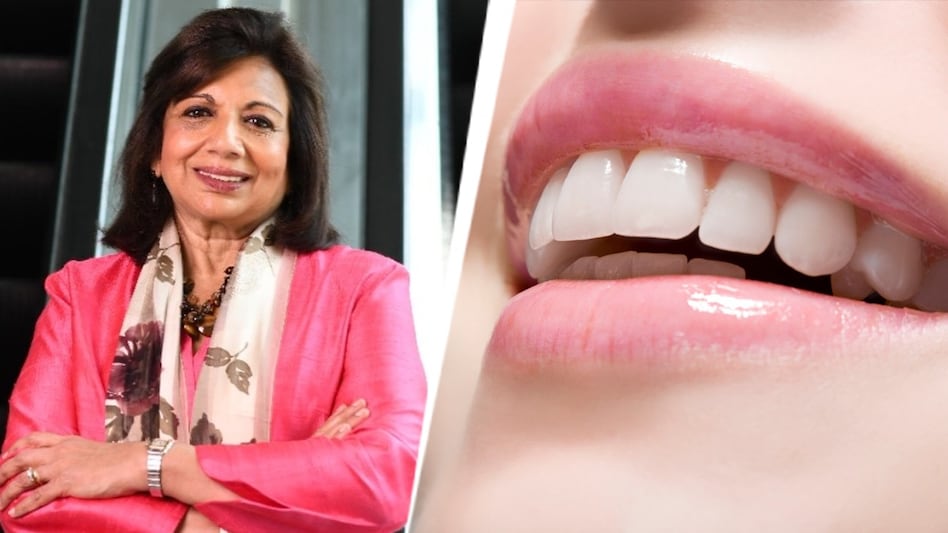 Kiran Mazumdar-Shaw Hails New Drug That Can Regrow Human Teeth
Kiran Mazumdar-Shaw Hails New Drug That Can Regrow Human Teeth Kiran Mazumdar-Shaw Hails New Drug That Can Regrow Human Teeth
Kiran Mazumdar-Shaw Hails New Drug That Can Regrow Human TeethBiocon Executive Chairperson Kiran Mazumdar-Shaw has hailed the development of a revolutionary drug capable of regrowing human teeth, calling it an "amazing discovery" that could render dental implants redundant. "It will disrupt dentistry for sure!" Mazumdar-Shaw tweeted on Sunday, expressing enthusiasm for the breakthrough.
The drug, developed by researchers at Japanese biotech firm Toregem Biopharma, targets a protein in the human body known as USAG-1. This protein inhibits the growth of new teeth, and by blocking it, researchers discovered that new teeth can grow naturally in the exact spot where old teeth once existed.
The team first tested the treatment on mice, where it successfully stimulated tooth growth. According to Katsu Takahashi, head of oral surgery at the Medical Research Institute Kitano Hospital in Osaka, humans and most mammals grow only two sets of teeth during their lifetime. However, dormant buds for a potential third set lie hidden beneath the gums.
Takahashi and his team began clinical trials in October at Kyoto University Hospital, administering the experimental drug to adult participants. "It's a technology completely new to the world," Takahashi said.
Prosthetic treatments like dental implants have long been the standard solution for tooth loss, but these are often costly and invasive. "Restoring natural teeth definitely has its advantages," Takahashi emphasised, highlighting the potential for the new treatment to revolutionise dentistry.
The researchers have published lab images of regrown teeth in animals, showing how blocking USAG-1 can activate these dormant buds. In a study published last year, the team reported that their "antibody treatment in mice is effective for tooth regeneration and can be a breakthrough in treating tooth anomalies in humans."
The initial focus of the drug's application is on patients with severe congenital conditions. Approximately 0.1% of people are born missing six or more permanent teeth, a hereditary anomaly that causes significant challenges in chewing and often leads to social stigma. In Japan, many such individuals spend their adolescence wearing face masks to conceal the gaps in their mouths. "This drug could be a game-changer for them," Takahashi stated.
The researchers aim to make the drug primarily available for children and hope to launch it by 2030.
(With inputs from AFP)